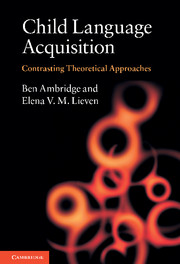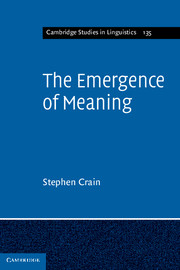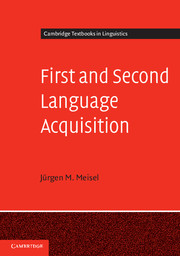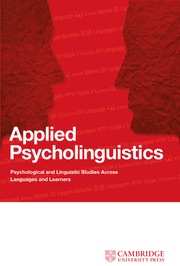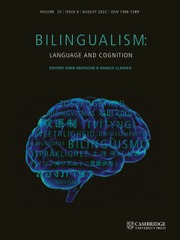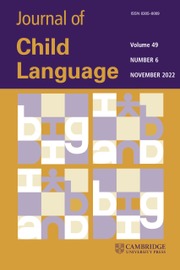Child Language Acquisition
Is children's language acquisition based on innate linguistic structures or built from cognitive and communicative skills? This book summarises the major theoretical debates in all of the core domains of child language acquisition research (phonology, word-learning, inflectional morphology, syntax and binding) and includes a complete introduction to the two major contrasting theoretical approaches: generativist and constructivist. For each debate, the predictions of the competing accounts are closely and even-handedly evaluated against the empirical data. The result is an evidence-based review of the central issues in language acquisition research that will constitute a valuable resource for students, teachers, course-builders and researchers alike.
- Introduces and critically evaluates all of the major research methods used in the field
- Contains a complete introduction to the two major theoretical approaches to child language acquisition (generativist and constructivist)
- Includes a comprehensive 'where are we now?' summary, suggesting possible directions for future research
Reviews & endorsements
'The focus on theoretical debates, and inclusion of multiple methodologies, is welcome, valuable, and informative.' Letitia Naigles, University of Connecticut
'… an excellent first step towards opening a dialog and closing the gap between generative and constructivist approaches to language learning, allowing progress beyond the traditional nature-nurture dialectic in language science … Readers will see how theory-driven investigation in language acquisition can advance our understanding of the unique human capacity for language.' Jeffrey Lidz, University of Maryland
'… an unusual and very important book. The question of how children acquire their native language is of tremendous interest to scholars in a broad range of fields. Not surprisingly, it has also led to many lively disagreements. Ambridge and Lieven have chosen to focus on these theoretical debates. The coverage of issues is impressive, but even more impressive is the extraordinarily careful and detailed analyses of competing theories and of the empirical data. The authors' treatments are fair and even-handed … The result is an extremely valuable contribution to the literature, and one that significantly advances our understanding of the field.' Jeff Elman, University of California, San Diego
'An ambitious, comprehensive and remarkably up-to-date adventure in adjudicating between nativist and constructivist approaches to human language acquisition. There's still room left for disagreement, especially on matters of interpretation, but graduate students and newcomers to the field of language acquisition who want to know the lay of the land would do well to start here.' Gary Marcus, New York University and author of The Birth of the Mind and Kluge: The Haphazard Evolution of the Human Mind
Product details
April 2011Hardback
9780521768047
466 pages
229 × 152 × 30 mm
0.84kg
44 b/w illus. 12 tables
Available
Table of Contents
- 1. Introduction
- 2. Speech perception, segmentation and production
- 3. Learning word meaning
- 4. Theoretical approaches to grammar acquisition
- 5. Inflection
- 6. Simple syntax
- 7. Movement and complex syntax
- 8. Binding, quantification and control
- 9. Related debates and conclusions.

